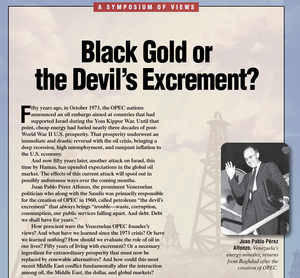 Is petroleum a horror? Not necessarily: if handled properly – Norway comes to mind as the beau idéal – the income from petroleum can be a boon, making a people richer and a country more influential. Trouble is, getting it right requires great dollops of discipline, honesty, and far-sightedness, traits not found in most leaderships. It is fascinating to watch these days how Guyana, the latest beneficiary of an extraordinary petroleum bounty, navigates these treacherous waters.
Is petroleum a horror? Not necessarily: if handled properly – Norway comes to mind as the beau idéal – the income from petroleum can be a boon, making a people richer and a country more influential. Trouble is, getting it right requires great dollops of discipline, honesty, and far-sightedness, traits not found in most leaderships. It is fascinating to watch these days how Guyana, the latest beneficiary of an extraordinary petroleum bounty, navigates these treacherous waters.
What have we learned over the past 50 years? That the "oil weapon" is blunt to the point of inutility; note the Russian failure to freeze Europe. That natural gas should not be flared off but is enormously valuable; just ask the Qataris. That peak oil is (so far) a myth because a mix of conservation and new technologies keeps expanding reserves. That Moses, in fact, did not make a wrong turn (as the joke had it), for Israel has considerable hydrocarbon reserves. That the system can handle seemingly any combination of bad management (Venezuela), domestic turmoil (Libya, Iraq), and sanctions (Russia).
How will the Israel-Hamas war affect oil markets? Probably not much. As of this writing (November 8, 2023), Hezbollah has declined to participate beyond taking token steps, the Houthis cannot do much, the Syrian state has higher priorities, and Tehran does not wish to enter into a conventional conflict with Israel, much less the United States.
What is the proper role of oil? It and water are the foundational commodities of modern life, so plans to do without the one is about as unrealistic as doing without the other, at least for many years to come. Petroleum should be appreciated as a blessing to humanity, despite the undeniable damage it does when there is too much of it relative to the population, leading to untampered arrogance (think of the shah). So yes, it rates as Black Gold.